Remaking the Urban Social Contract
Health, Energy, and the Environment
EDITED BY MICHAEL A. PAGANO
University of Illinois at Chicago
PUBLISHED FOR THE
COLLEGE OF URBAN PLANNING
AND PUBLIC AFFAIRS (CUPPA),
UNIVERSITY OF ILLINOIS AT CHICAGO,
BY THE UNIVERSITY OF ILLINOIS PRESS
Urbana, Chicago, and Springfield
The College of Urban Planning and Public Affairs of the University of Illinois at Chicago and the University of Illinois Press gratefully acknowledge that publication of this book was assisted by a grant from the John D. and Catherine T. MacArthur Foundation.
2016 by the Board of Trustees
of the University of Illinois
All rights reserved
Manufactured in the United States of America
1 2 3 4 5 C P 5 4 3 2 1

This book is printed on acid-free paper.
Library of Congress Control Number: 2016942752
ISBN 978-0-252-04069-6 (hardcover)
ISBN 978-0-252-08220-7 (paperback)
ISBN 978-0-252-09913-7 (e-book)
Preface and Acknowledgments
The political mood of the United States in the early twenty-first century has been characterized as polarizing. A 2014 poll by the Pew Research Center found that the typical median Republican is now more conservative than 94% of Democrats, compared with 70% twenty years ago. And the median Democrat is more liberal than 92% of Republicans, up from 64% (see 7 Things to Know about Polarization in America, June 12, 2014, www.pewresearch.org). Polarizing views can bring change in policies, programs and rules. And polarizing views can manifest themselves in challenges to the status quo, including the social contract that binds together people and communities.
The politically tumultuous 1960s and early 1970s in the United States resulted in national, state, and local governments promulgating policies designed to address a host of societal issues, including a degrading environment (e.g., the National Environmental Policy Act of 1969), unaffordable health care for the poor and elderly (e.g., Medicaid and Medicare in 1965), and energy conservation (e.g., fuel efficiency standards in 1975). Although a broad commitment to meet these societal issues created a broad social contract among the people, the contract is becoming unraveled and contested even as important advances in these three areas have been undertaken in the past decade. The challenges to the old social compact are most visibly played out in the nation's metropolitan regions, which generate 85 percent of the gross domestic product. Attacks on government regulation of health, energy, and environment issues coupled with the recent contraction of the economy and challenges to the validity of scientific inquiry have created a political situation in which metropolitan regions and cities are grappling again with redefining, revising, and remaking the social contract that prevailed for nearly half a century. With particular emphasis on the social contracts and political agreements on health, energy, and environmental policies of the last forty to fifty years, the 2015 UIC Urban Forum focuses on the substantive and philosophical shifts in the urban social contract and examines the remaking of urban social contracts today.
The 2015 event was cochaired by Cook County Board president Toni Preckwinkle, president and CEO of the Chicago Community Trust (CCT) Terry Mazany, and UIC chancellor Michael Amiridis. The daylong event was held September 17, 2015, beginning with two morning panels moderated by WBEZ news reporters. The four afternoon panels were organized around the themes of the four white papers. The day's events ended with a discussion on engaging communities and neighborhoods in conversations to spark meaningful dialogue and build authentic relationships for a more just and democratic society. Mazany, who spearheaded citywide On the Table events in 2014 and 2015 for the express purpose of bringing people together to explore what can be done to make the city a better place, discussed community building with Joseph Hoereth, who directs UIC's Institute for Policy and Civic Engagement (IPCE). Mazany and Hoereth ended the day's conversation by inviting proposals from the audience to design and implement a targeted project that would facilitate building communities around a social contract to be funded by CCT and IPCE. The conference ended by encouraging creative solutions to challenging problems that would build healthy, sustainable, and vibrant environments.
The 2015 UIC Urban Forum was organized by an executive committee that chose the theme of the conference, a committee of UIC scholars that identified the white papers and the authors, an external advisory board that recommended participants for the morning panels, and an operations committee responsible for organizing and planning the conference. The executive committee, which I chaired, included the UIC Great Cities Institute director Teresa Crdova, and the associate chancellor for Government and Public Affairs, Michael Redding. The UIC Committee of Academic Advisors included George Crabtree, Constance Miles Dallas, Dennis Judd, Cynthia Klein-Banai, Elizabeth Kocs, David Perry, Jesus Ramirez-Valles, and Steve Schlickman.
The external board of advisors includes the following:
- Clarence Anthony, executive director, National League of Cities
- MarySue Barrett, president, Metropolitan Planning Council
- Henry Cisneros, former secretary, HUD; former mayor, San Antonio; founder and chairman, CityView
- Michael Coleman, mayor, Columbus
- Rahm Emanuel, mayor, Chicago
- Lee Fisher, president and CEO, CEOs for Cities
- Karen Freeman-Wilson, mayor, Gary
- Bruce Katz, director of the Metropolitan Policy Program, Brookings Institution
- Jeff Malehorn, president and CEO, World Business Chicago
- Terry Mazany, president and CEO, Chicago Community Trust
- Toni Preckwinkle, president, Cook County Board
- Joseph Szabo, executive director, Chicago Metropolitan Agency for Planning
- Susana Vasquez, executive director, LISC Chicago
Participants on the panels included the following:
- John Lumpkin, senior vice president, Robert Wood Johnson Foundation
- LaMar Hasbrouck, executive director, National Association of County and City Health Organizations
- John Jay Shannon, CEO, Cook County Health System
- Natalie Moore, WBEZ
- Henry Henderson, director, National Resources Defense Council, Midwest
- David Ullrich, executive director, Great Lakes and St. Lawrence Cities Initiative
- Suzanne Malec-McKenna, executive director, Chicago Wilderness
- Shannon Heffernan, WBEZ
- William Kling, School of Public Health, University of Illinois at Chicago
- Emily Stiehl, School of Public Health, University of Illinois at Chicago
- Norbert Riedel, president and CEO, Naurex
- Terry Vanden Hoek, chair of Emergency Medicine, University of Illinois at Chicago
- Julie Morita, commissioner, Chicago Department of Public Health
- Anthony Townsend, research director, Institute for the Future
- Moira Zellner, Department of Urban Planning and Policy, University of Illinois at Chicago
- John Edel, CEO, the Plant
- Elizabeth Kocs, the Energy Initiative, University of Illinois at Chicago
- Howard Learner, president and executive director, Environmental Law and Policy Center

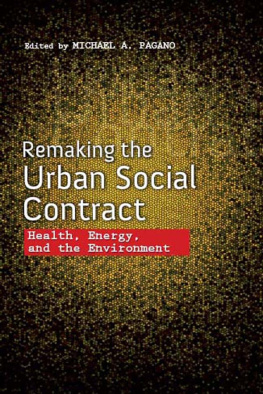
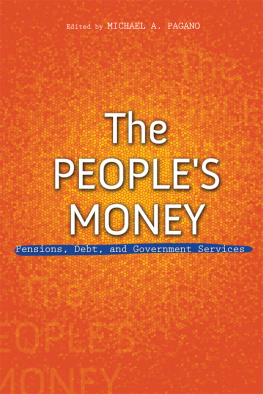
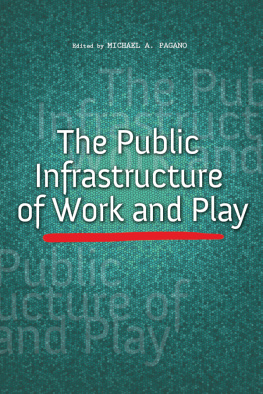
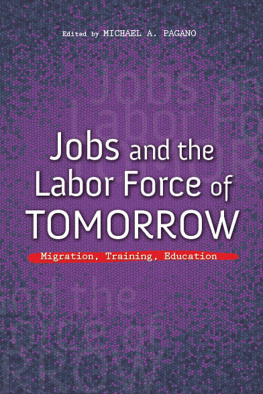
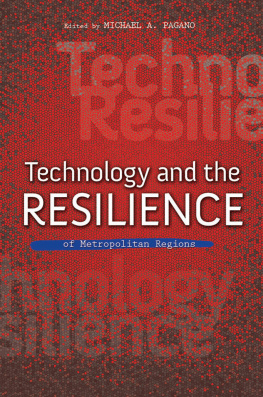

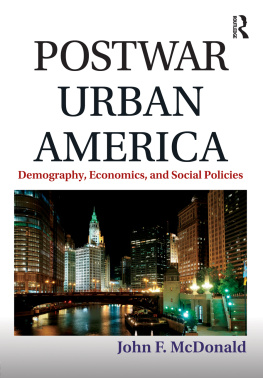
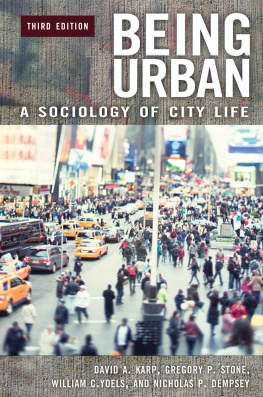

 This book is printed on acid-free paper.
This book is printed on acid-free paper.